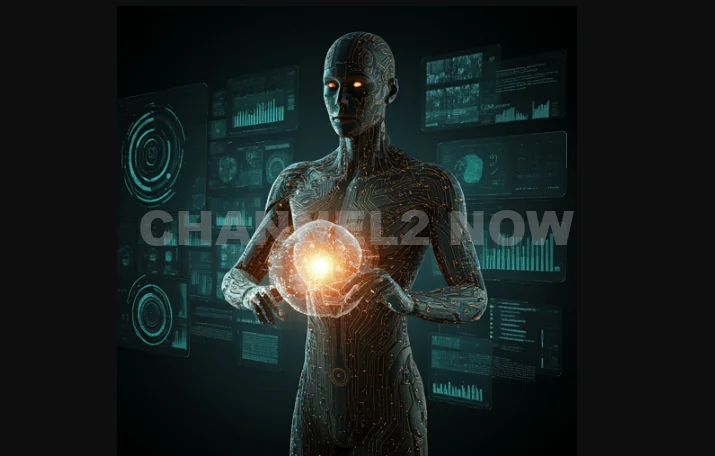Anthropic’s Latest AI Innovations, Including Claude 3.5 Sonnet and Claude 3.5 Haiku, Mark a Groundbreaking Death of Traditional Boundaries in Technology as the Company Aims to Enhance Developer Efficiency with New Computer Use Capabilities
In an era marked by rapid technological advancement, Anthropic, a pioneering AI safety and research company, has taken a bold step forward with the introduction of its new generation of Claude AI models. These latest innovations, Claude 3.5 Sonnet and Claude 3.5 Haiku, reflect not just an evolution in artificial intelligence but also signal the potential to revolutionize the way developers interact with technology. The announcement, which comes as the world grapples with the implications of AI integration into everyday tasks, highlights the company’s commitment to enhancing efficiency and safety in AI usage.
The unveiling of the Claude 3.5 models is a watershed moment in the field of artificial intelligence. Designed with enhanced performance capabilities, these models are set to redefine the landscape of AI applications. The significance of this development cannot be overstated, as it marks a transition from merely responsive AI to systems that can proactively engage in complex tasks with unprecedented autonomy. This shift in capability positions Claude AI as a critical tool for a variety of applications, ranging from coding assistance to interactive engagement, significantly expanding the possibilities for both individual developers and larger teams.
One of the most groundbreaking features introduced in the Claude 3.5 models is the computer use function. This capability allows the AI to control and interact with computers in ways previously thought to be the domain of human users. The potential applications of this feature are vast and varied; for instance, the AI can now execute simple tasks like moving a mouse or typing commands, as well as more complex functions such as running software applications and automating routine processes. By enabling AI to interact directly with computer systems, Anthropic has opened up new avenues for streamlining workflows and enhancing productivity across numerous industries. The implications for business efficiency are enormous, as companies can now delegate repetitive tasks to AI systems, allowing human workers to focus on higher-level strategic planning and creative problem-solving.
The focus on developer efficiency is particularly noteworthy in this latest update. Anthropic has tailored its AI advancements specifically to meet the needs of software developers, recognizing the critical role they play in the technology ecosystem. The Claude 3.5 models can now assist developers with a range of tasks, including code generation, debugging, and documentation. This assistance is not merely superficial; it fundamentally alters the way developers can approach their work, providing them with a powerful ally in navigating the complexities of modern software development. By reducing the time spent on mundane or repetitive tasks, these AI models enable developers to channel their expertise into more innovative and impactful areas of their projects.
As the tech community absorbs the implications of these advancements, conversations surrounding AI ethics and safety have surged to the forefront. Anthropic has established itself as a leader in AI safety, and with these new capabilities, the company is keenly aware of the responsibilities that come with increased AI autonomy. The development of AI systems that can interact with computers raises essential questions about oversight, security, and the potential for misuse. Anthropic’s commitment to ethical AI development is a cornerstone of its mission, ensuring that while these technologies expand the frontiers of what is possible, they do so within a framework that prioritizes safety and accountability. The company’s ongoing dialogue with stakeholders, including developers, businesses, and regulatory bodies, underscores the importance of collaboration in addressing these critical issues.
Moreover, the launch of the Claude 3.5 models reflects broader trends in the technology sector, where the demand for more sophisticated AI solutions is ever-increasing. As businesses seek to leverage AI for competitive advantage, the capabilities offered by Anthropic’s new models position them as vital tools in the ongoing digital transformation. The ability of these models to understand and execute tasks with a high degree of precision makes them invaluable assets for organizations looking to optimize their operations and improve overall efficiency. In an environment where speed and agility are paramount, the integration of AI into business processes is rapidly becoming a necessity rather than a luxury.
In addition to enhancing developer productivity, the new AI models also have implications for the training and onboarding of new developers. With AI systems capable of generating code and providing instant feedback, junior developers can access a wealth of resources and support that was previously unavailable. This shift not only accelerates the learning curve for new talent entering the field but also fosters a culture of collaboration and knowledge sharing among experienced and novice developers alike. The Claude 3.5 models serve as a bridge, connecting individuals at various skill levels and creating an environment where innovation can flourish.
As the conversation surrounding these technological advancements continues, it is essential to recognize the human element in the integration of AI into the workplace. While the capabilities of the Claude 3.5 models are impressive, it is the collaboration between human intuition and machine efficiency that will ultimately drive success. The role of developers is evolving, and with the support of advanced AI tools, they can pursue projects that require deeper critical thinking and creativity. The synergy between humans and AI systems presents an exciting frontier, one where the unique strengths of each can be harnessed to achieve extraordinary results.
In conclusion, the launch of Anthropic’s Claude 3.5 Sonnet and Claude 3.5 Haiku models marks a significant milestone in the evolution of artificial intelligence. With their advanced capabilities and focus on enhancing developer efficiency, these models are set to transform the landscape of software development and beyond. As the technology continues to evolve, the imperative for ethical AI development remains paramount. Anthropic’s commitment to safety and responsible AI practices ensures that while the boundaries of technology are pushed, they are done so in a manner that respects the principles of accountability and integrity. As the industry moves forward, the integration of AI into everyday tasks will undoubtedly reshape the future of work, paving the way for a more efficient and innovative landscape.




